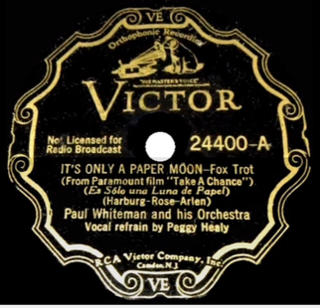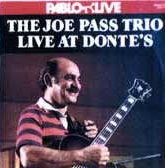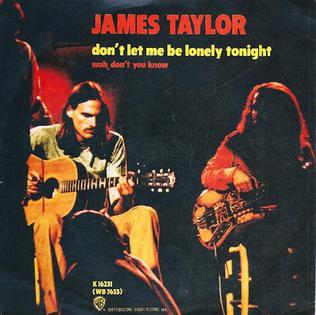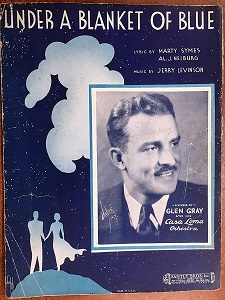Related Research Articles

Tin Pan Alley was a collection of music publishers and songwriters in New York City that dominated the popular music of the United States in the late 19th and early 20th centuries. Originally, it referred to a specific location on West 28th Street, between Fifth and Sixth Avenues in the Flower District of Manhattan, as commemorated by a plaque on 28th Street between Broadway and Sixth.

Ann Ronell was an American composer and lyricist. She was best known for the standards "Willow Weep for Me" (1932) and "Who's Afraid of the Big Bad Wolf" (1933).
"What Is This Thing Called Love?" is a 1929 popular song written by Cole Porter, for the musical Wake Up and Dream. It was first performed by Elsie Carlisle in March 1929. The song has become a popular jazz standard and one of Porter's most often played compositions.
Shine is a popular song with lyrics by Cecil Mack and Tin Pan Alley songwriter Lew Brown and music by Ford Dabney. It was published in 1910 by the Gotham-Attucks Music Publishing Company and used by Aida Overton Walker in His Honor the Barber, an African-American road show. According to Perry Bradford, himself a songster and publisher, the song was written about an actual man named Shine who was with George Walker when they were badly beaten during the New York City race riot of 1900.
"Too Marvelous for Words" is a popular song written in 1937. Johnny Mercer wrote the lyrics for music composed by Richard Whiting. It was introduced by Wini Shaw and Ross Alexander in the 1937 Warner Brothers film Ready, Willing, and Able, as well as used for a production number in a musical revue on Broadway. The song has become a pop and jazz standard and has been recorded by many artists.

"It's Only a Paper Moon" is a popular song published in 1933 with music by Harold Arlen and lyrics by Yip Harburg and Billy Rose.
"You're Getting to Be a Habit with Me" is a 1932 popular song with music by Harry Warren and the lyrics by Al Dubin, which became a standard. The lyrics of the song were noted for its references to addiction.
"I'm Beginning to See the Light" is a popular song and jazz standard, with music written by Duke Ellington, Johnny Hodges, and Harry James and lyrics by Don George and published in 1944.
"Don't Get Around Much Anymore" is a jazz standard written by composer Duke Ellington. The song was originally entitled "Never No Lament" and was first recorded by Duke Ellington and his orchestra on May 4, 1940. "Don't Get Around Much Anymore" quickly became a hit after Bob Russell wrote its lyrics in 1942.

"Mighty Lak' a Rose" is a 1901 song with lyrics by Frank Lebby Stanton and music by Ethelbert Nevin. The lyrics are written in an approximation of an African American accent as a "dialect song", and the title thus means "mighty like a rose". It is sung by a black woman called "Mammy" to a newborn blue-eyed white boy in her care. It was common at the time for white families to hire trusted black women to care for their children.
"You Took Advantage of Me" is a 1928 popular song composed by Richard Rodgers, with lyrics by Lorenz Hart, for the musical Present Arms (1928), where it was introduced by Joyce Barbour and Busby Berkeley as the characters Edna Stevens and Douglas Atwell. The characters were formerly married, but still have romantic feelings for each other. On opening night, Berkeley forgot the lyrics and had to scat and hum the entire second verse. Berkeley also claimed that his nonsense lyrics for the improvised second verse left Hart "almost apoplectic", but the audience was amused and Hart later forgave him. The song was subsequently included in the 1930 film Leathernecking, an adaptation of Present Arms.

"Willow Weep for Me" is a popular song composed in 1932 by Ann Ronell, who also wrote the lyrics. The song form is AABA, written in 4
4 time, although occasionally adapted for 3
4 waltz time.
"I Got It Bad (and That Ain't Good)" is a pop and jazz standard with music by Duke Ellington and lyrics by Paul Francis Webster published in 1941. It was introduced in the musical revue Jump for Joy by Ivie Anderson, who also provided the vocals for Duke Ellington and His Orchestra on the single Victor 27531. Recordings to reach the Billboard charts in 1941/42 were by Duke Ellington (#13) and by Benny Goodman (vocal by Peggy Lee) (#25).

"Alabamy Bound" is a Tin Pan Alley tune written in 1924, with music by Ray Henderson and words by Buddy DeSylva and Bud Green. It was popularized by Al Jolson and included in the musical Kid Boots, where it was sung by Eddie Cantor. Successful recordings of the song were released in 1925 by Paul Whiteman, Isham Jones and Fletcher Henderson (instrumentals), as well as Blossom Seeley, whose vocal version reached number 2 on the charts. The song has sold over a million copies of sheet music and has been included in several films over the years.
Bernice Petkere was an American songwriter. She was dubbed the "Queen of Tin Pan Alley" by Irving Berlin.

Live at Donte's is a live album by American jazz guitarist Joe Pass recorded in 1974 but first released in 1981 on Pablo Records as a double album. After spending over ten years playing in relative obscurity, Pass released the critically acclaimed solo-guitar Virtuoso and also played on two Ella Fitzgerald albums.
"'Deed I Do" is a 1926 jazz standard composed by Fred Rose with lyrics by Walter Hirsch. It was introduced by vaudeville performer S. L. Stambaugh and popularized by Ben Bernie's recording. It was recorded by influential clarinetist and bandleader Benny Goodman as his debut recording in December 1926 with Ben Pollack and His Californians. Ruth Etting's rendition of the song became a top ten hit in 1927 as did the version by Johnny Marvin.

Nathan "Ned" Miller was a British-born American songwriter, composer, music publisher, and actor who wrote the hit songs, "Why Should I Cry Over You", in 1922, "Sunday" in 1926, and "Little Joe" in 1931. His music has been recorded by Frank Sinatra, Nat King Cole, Louis Armstrong, Al Jolson, Carmen McRae, Stan Getz, Peggy Lee, the Ink Spots, Johnny Mercer, Benny Goodman, Andy Williams, and many others. His music has also been featured in weekly TV programs and films. In 1982, Ned Miller was inducted into the American Society of Composers, Authors and Publishers (ASCAP) Golden Circle after having been a member for fifty years.

"Don't Let Me Be Lonely Tonight" is a song written and performed by American singer-songwriter James Taylor, from his 1972 album One Man Dog. The song has been included on three of Taylor's greatest-hits collection albums: Greatest Hits (1976), Classic Songs (1987) and The Best of James Taylor (2003). Taylor re-recorded the song for the 2001 Michael Brecker album Nearness of You: The Ballad Book; this rendition won Taylor the Grammy Award for Best Male Pop Vocal Performance in 2002.

"Under a Blanket of Blue" is an American popular song composed by Jerry Livingston, with lyrics by Marty Symes and Al J. Neiburg. It was published by Santly Bros., Inc. in 1933, one of four hits by the songwriting trio that year, along with "It's the Talk of the Town."
References
- ↑ Burlingame, Sandra. "Lullaby of the Leaves (1932)". jazzstandards.com.
- ↑ Pessen, Edward (Summer 1985). "The Great Songwriters of Tin Pan Alley's Golden Age: A Social, Occupational, and Aesthetic Inquiry". American Music. 3 (2): 180–197. doi:10.2307/3051635. JSTOR 3051635 . Retrieved 25 March 2022.
- ↑ Whitburn, Joel (1986). Joel Whitburn's Pop Memories 1890-1954 . Wisconsin, USA: Record Research Inc. p. 343. ISBN 0-89820-083-0.
- ↑ Associated Press (9 January 1933). "25-Year-Old Housewife Is Latest Addition To Tin Pan Alley Colony". El Paso Times. El Paso, Texas. Retrieved 25 March 2022.
- ↑ Staff (1951). "Around Town". The New Yorker . Vol. 127. p. 123.
- ↑ Bang, Derrick (2014). Vince Guaraldi at the Piano. McFarland. p. 332. ISBN 9780786490745.
- ↑ Porter, Lewis (October 1984). ""You Can't Get up There Timidly": Jazzwomen: Part II". Music Educators Journal. 71 (2): 42–51. doi:10.2307/3396356. JSTOR 3396356. S2CID 143894110 . Retrieved 25 March 2022.
- ↑ Buchanan, William (16 August 1964). "Ella a Rare Success--Arrived on Talent Alone". Boston Globe. Boston, Massachusetts. Retrieved 25 March 2022.
- ↑ Howard, Rebecca Cline (October 22, 2002). "Hamilton trio gets it together nicely". Deseret News . Retrieved December 30, 2023.
- ↑ https://music.apple.com/ca/song/lullaby-of-the-leaves/1600960554
- ↑ "Jasmine TESSARI / Francesco FIORETTI". ISUResults.com. International Skating Union. 27 February 2020. Retrieved 25 March 2022.
- ↑ "Photo-stories from Graz (Part Three): the ice dancing event". Inside Skating. Cluj-Napoca, Romania. 16 February 2020. Retrieved 25 March 2022.